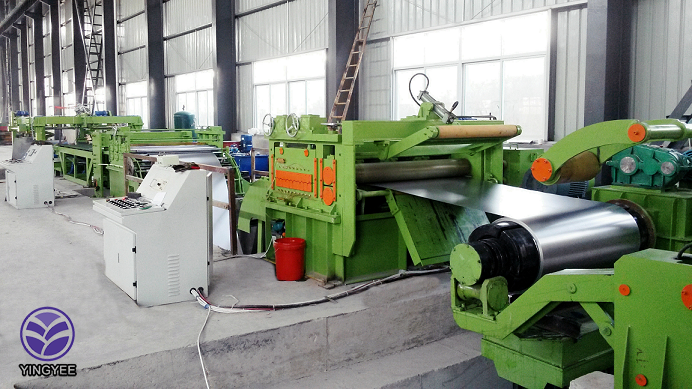
Precision Roll Forming Machines Revolutionizing Manufacturing
In the landscape of modern manufacturing, precision plays a critical role. As industries demand higher efficiency and quality, the emergence of precision roll forming machines has reshaped how metal components are produced. This technology, integral in various sectors ranging from automotive to construction, offers a plethora of advantages that enhance productivity and product quality.
What is Roll Forming?
Roll forming is a continuous bending operation in which a long strip of metal, usually sheet steel, is passed through a series of rollers to create the desired cross-sectional profile. This process is particularly useful for creating complex shapes that would otherwise be difficult to manufacture using traditional methods such as stamping or machining. The precision roll forming machine takes this process several steps further by enhancing accuracy, consistency, and speed.
Advantages of Precision Roll Forming Machines
1. High Precision and Consistency Precision roll forming machines are designed with advanced engineering and manufacturing techniques, allowing them to create components with tight tolerances. This is essential in industries where specifications are crucial, such as aerospace and automotive manufacturing. The uniformity in thickness and shape reduces the need for secondary machining processes, saving both time and costs.
2. Material Efficiency Roll forming is known for its ability to produce parts with minimal waste. Since the process involves continuous shaping of metal strips, it significantly reduces scrap compared to other manufacturing methods. Additionally, the material can often be recycled easily, promoting a more sustainable manufacturing process.
3. Versatility in Design These machines can produce an extensive range of profiles and geometries. Whether it’s for framing components, brackets, or even decorative elements, precision roll forming machines can handle diverse applications. This versatility enables manufacturers to respond rapidly to changing market demands, allowing for more customized solutions.

4. Increased Production Speed The continuous operation of roll forming allows for high production rates. Once set up, the machines can run for hours or even days with minimal supervision. This efficiency not only reduces labor costs but also shortens lead times for production, helping companies meet tight deadlines.
5. Strength and Durability Components produced through precision roll forming are often stronger than those made through other methods. The cold working process involved in roll forming enhances the mechanical properties of the material, resulting in parts that can withstand higher loads and resist deformation. This quality is particularly vital in industries that prioritize safety and structural integrity.
Applications of Precision Roll Forming Machines
Precision roll forming machines find their applications in a wide array of industries. In the automotive sector, they are used to create structural components like chassis, door frames, and body panels. The construction industry benefits from roll-formed metal components used in roofing, siding, and structural supports. Additionally, the electrical industry utilizes roll forming for making cable trays and conduits, while the HVAC industry employs this technology for ductwork and ventilation systems.
The Future of Precision Roll Forming
As technology progresses, the future of precision roll forming machines looks promising. Innovations such as the integration of robotics and automation are likely to enhance efficiency and reduce labor costs further. Additionally, advancements in software for designing and simulating roll forming processes will allow manufacturers to optimize their production lines, thus increasing productivity even more.
Conclusion
Precision roll forming machines have become indispensable tools in modern manufacturing. Their speed, accuracy, and ability to produce complex geometries make them ideal for a variety of industries. As manufacturers look for ways to innovate and stay competitive, the adoption of precision roll forming technology will undoubtedly play a crucial role in shaping the future of production. By investing in such advanced machinery, companies can not only improve their output quality but also enhance their overall efficiency and sustainability in an ever-evolving marketplace.